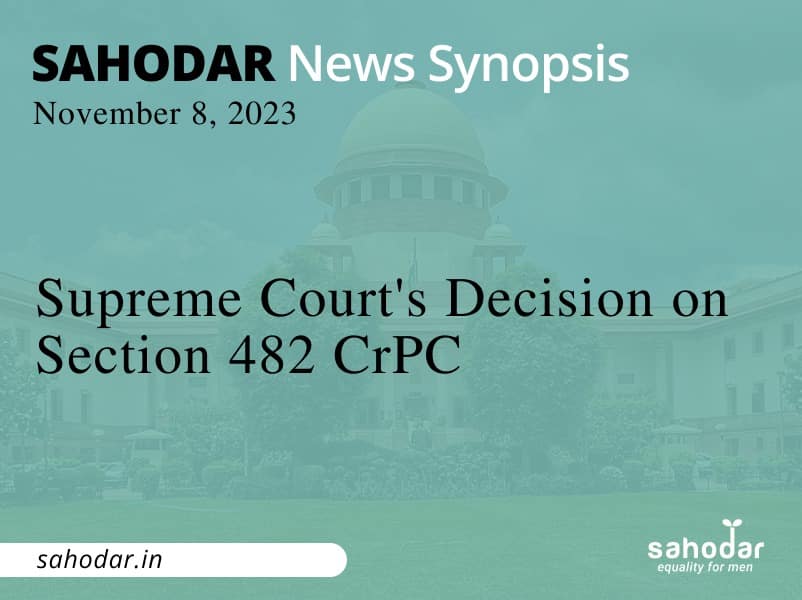The Supreme Court was deciding the appeal against Allahabad High Court’s order wherein it had held that the petitioner could not continue to challenge the proceedings when he had not raised objections to the charge sheet or cognizance order in his first petition under Section 482 Cr.P.C.
Supreme Court: A case was presented before a bench comprising Justices CT Ravikumar and Sanjay Kumar, inquiring into the permissibility of filing a subsequent petition under Section 482 of the Criminal Procedure Code (Cr.P.C.) on grounds that were extant and raisable during the initiation of the initial petition. The Court elucidated that there exists no rigid prohibition against the filing of a second petition under Section 482 of Cr.P.C., as the admissibility is contingent on the specific factual matrix of each case. The Court underscored the principle that litigants are not permitted to persistently introduce fresh arguments through successive petitions, particularly when such arguments were readily available during the initial submission.
In the matter at hand, the Government of Uttar Pradesh granted sanction in 2013 to prosecute the petitioner for alleged offenses encompassing various sections of the Indian Penal Code (IPC) and the Prevention of Corruption Act. Subsequently, a charge sheet was filed in 2015, and the case was taken cognizance of by a Special Court in Bareilly. Initially, in 2018, the petitioner filed a petition challenging the governmental sanction. Notably, during the filing of this first petition under Section 482 Cr.P.C., the charge sheet was already on record, and the Sessions Judge in Rampur had already taken cognizance of the case.
Curiously, in 2022, the petitioner filed a second Section 482 Cr.P.C. petition, seeking to quash the charge sheet, cognizance order, and case proceedings. The High Court dismissed this second petition, reasoning that the petitioner was precluded from repetitively impugning the same proceedings, especially when the charge sheet and cognizance order had not been a source of grievance during the filing of the first Section 482 Cr.P.C. petition. The High Court concluded that the subsequent petition, challenging the same issues, was not maintainable, and subsequently, dismissed the application. Subsequently, the petitioner appealed this decision to the Supreme Court.
Consequently, the petitioner approached the Supreme Court to challenge the High Court’s dismissal order. The Supreme Court observed that in the present case, the charge sheet and cognizance order had preceded the initiation of the first Section 482 Cr.P.C. petition, which exclusively challenged the governmental sanction. As a result, the petitioner was precluded from later invoking the High Court’s inherent jurisdiction to contest the charge sheet and cognizance order.
Declining to interfere with the High Court’s decision, the Supreme Court emphasized that, in this particular instance, it was inappropriate to revisit matters concerning the charge sheet and cognizance order in subsequent petitions when they could have been addressed during the initial proceeding.
“Permitting the filing of successive petitions under Section 482 Cr.P.C. ignoring this principle would enable an ingenious accused to effectively stall the proceedings against him to suit his own interest and convenience, by filing one petition after another under Section 482 Cr.P.C., irrespective of when the cause therefor arose. Such abuse of process cannot be permitted.”

